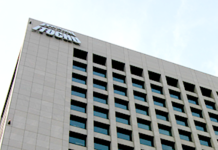Labour Peer Peter Hain is putting additional pressure on Bain & Company, calling for President Joe Biden to follow the U.K. in banning the firm from future government contracts.
The former minister and anti-apartheid campaigner, who has been a vocal critic of the global management consultancy, urged the U.S. government to act, following on the heels of a three-year ban on tendering U.K. government contracts that began in August. Hain has placed significant pressure on the government to enact the ban in response to Bain’s involvement in a massive South African corruption scandal, calling on Boris Johnson’s government to penalize the Boston-based firm in January.
The Labour peer sent a letter to President Biden, writing: “I urge the U.S. government to similarly institute a ban on Bain working for any public sector organization in your country, at least until the current judicial process over Bain’s nefarious role in South Africa has completed its full course.”
A copy of the letter was sent to Ron Kind, the chair of the British-American parliamentary group in the U.S. House of Representatives.
The ban was handed down in response to the findings of two independent judicial commissions of inquiry in South Africa, specifically the Nugent commission, chaired by Judge Robert Nugent and concluding in 2018, and the Zondo commission, chaired by Chief Justice Raymond Zondo, which concluded in 2022. The Zondo commission determined that there had been “collusion” between Bain and former South African president Jacob Zuma to undermine the nation’s tax collection agency and reshape entire swaths of the economy.
The commission found that over a three year period spanning 2012 to 2015, the firm helped draft plans to “seize and restructure” the South African Revenue Service (SARS) and centralize procurement procedures in a manner that would favor Zuma and his associates, facilitating further corruption in the post-apartheid state.
In an August statement, Bain responded to the allegations, stating that it was “disappointed and surprised” by the Cabinet Office’s decision, asserting that it did not act illegally at SARS or elsewhere, and that no evidence to the contrary has been put forward. The firm has apologized for what it described as “mistakes” made by its South African office and repaid all fees from the work, with interest, in 2018.

























